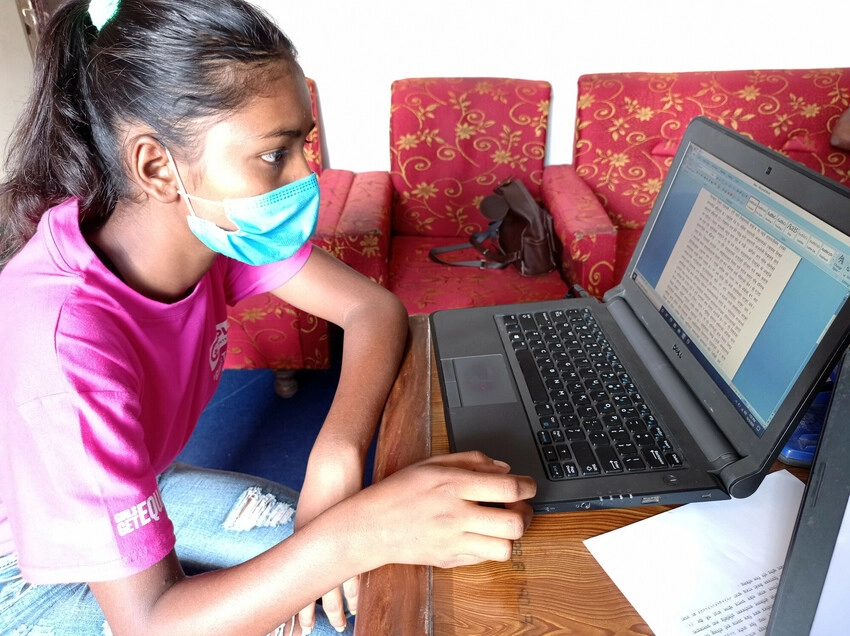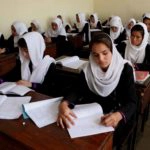Media Centre - 14 September 2021
Youth activists call out increased online harassment in push for ‘bystander’ solidarity

Youth activists from Australia, Indonesia and Vietnam have come together to demand an end to online harassment, calling on governments and social media companies to step up and offer better digital literacy and bystander support.
At a time when the COVID pandemic has seen an unprecedented rise in online harassment, the youth activists aged 15 to 25, have today released a new campaign and report The Future Online calling for stronger digital literacy education, and for social media companies to implement new measures to create safer online spaces for young people in all their diversity.
The project, which was led and designed by youth activists from all three countries and coordinated by Plan International Australia’s Youth Activist series with support from The Body Shop, uncovers how active bystander intervention and reform of social media platforms can help fight the growing levels of gender-based violence and harassment experienced by young people online.
The Australian cohort of these young change-makers are part of the Youth Activist Series — a 12-month leadership program by Plan International Australia and supported by The Body Shop, designed to amplify girls’ and young gender diverse people’s voices on equality.
The report also calls for greater ‘bystander support’ for young people online, presenting resources designed to ensure young people understand the importance of being active bystanders, and feeling equipped to act if they witness online harassment in terms of access to resources and digital literacy.
It follows the Plan International Free to Be Online research that found 58% of girls across all 22 survey countries had personally experienced some type of online abuse on social media platforms.
“In a space that should be safe and used for education and communication, severe acts of violence from trolling, to cyberstalking, to sexual exploitation are occurring and are having a destructive impact on young people all across the world,” says Olivia, 18, an Australian Youth Activist co-author of the report.
“The concept of bystander intervention is as simple as people helping people. An active bystander acts against online abuse when they witness it. This report was created with the goal of increasing active bystanders to combat the toxic surge of online violence, and work toward a safer and more inclusive online space,” she said.
Putri Naila, a youth activist from Indonesia, said: “We are inseparable from social media and digital platforms. While we are able to benefit in many ways in online spaces, not a small number of girls are scared and intimidated online. But we have the ability to support and empower each other, as well as making sure we work towards equality, humanity and creating better online spaces.”
“From online harassment to bullying, a lot of bad things harm people, and it is still happening every day online. People might express themselves in a wrong way, but it is on us to do something. Because even the simplest things, like reporting or giving supportive messages, matter,” she said.
Key findings and recommendations
Through youth-led research and interviews with peers in the region the report found:
● There are a range of factors that contribute to online violence and harassment including cultural norms and gender stereotypes, social media platforms not doing enough to address the issue, social media influencers who can sometimes perpetuate the problem and more broadly, the global pandemic.
● Young people are powerful agents of change and can be mobilised to be active bystanders – but they need the education, tools and support to do so. Education systems and social media companies have a big and important role to play in equipping people to be active bystanders.
● Education and resources for active bystanding will be most effective if they are co-designed with young people and centre the voices of victims/survivors. They must be comprehensive and include – the root causes of gender based violence and harassment, adopt a trauma-informed approach, address the mental health impacts on bystanders and provide a toolkit of what actions we can take as bystanders.
Key recommendations:
● Ministries of Education to develop and deliver (with young people) comprehensive digital literacy education that addresses online gender based violence and harassment as well as providing mental health support programs to young people experiencing violence and harassment and active bystanders.
● Social media companies to implement a range of measures including access to bystander information alongside links to region-specific support systems; create safer online spaces for young people with diverse experiences (eg LGBTIQA+ young people, young people of colour, Indigenous young people), take clear and active steps to stamp out gender based violence and harassment on their platforms.
Susanne Legena, CEO of Plan International Australia, said:
“The impact of the COVID-19 pandemic has meant people across the world are spending more time online than ever before. While this has allowed us to stay connected to each other, work and study from home, we have also seen an increase in the amount of gender based harassment in online spaces. The environments online have to change.”
“Young people are tired of feeling unsafe in online spaces, and tired of social media companies doing nothing about it. At Plan International Australia we believe young people are best placed to create solutions to the problems that directly impact them, and thus this project allows us to tackle online harassment head on, and propose solutions for a new way forward.”
“With close to 700 million girls out of school right now it’s more important than ever that they enjoy full and equal access to the opportunities our online spaces have to offer.”
The youth activists have asked the public to support an online pledge to be an active online bystander – sign the pledge.
For further comment please contact Plan International Australia media and ambassador manager James Norman on 0451291775 or media and public relations advisor Claire Knox on 0452326549
About the YAS
The youth activists are part of the 2021 cohort of the Youth Activist Series (YAS) – a 12-month leadership program run by Plan International Australia – the charity for girls’ equality, and supported by The Body Shop – an organisation with deep activist roots and strong values around empowering young women. Aged between 17-25 from Melbourne and Sydney, Plan International Australia’s youth activists fight for long-lasting social change, gender equality and human rights through advocacy, influencing and youth-led research. They are powerful, fearless and feminist.
About Plan International Australia
Put simply, we’re the charity for girls’ equality. We tackle the root causes of poverty, support communities through crises, campaign for gender equality, and help governments do what’s right for children and particularly for girls. We believe a better world is possible. An equal world; a world where all children can live happy and healthy lives, and where girls can take their rightful place as equals.
About The Body Shop Australia:
Founded in 1976 in Brighton, England, by Dame Anita Roddick, The Body Shop is a global beauty brand and a certified B Corp™. The Body Shop seeks to make positive change in the world by offering high-quality, naturally-inspired skincare, body care, hair care and make-up produced ethically and sustainably. Having pioneered the philosophy that business can be a force for good, this ethos is still the brand’s driving force. The Body Shop operates about 3,000 retail locations in more than 70 countries. Along with Aesop, Avon and Natura, The Body Shop is part of Natura &Co, a global, multi-channel and multi-brand cosmetics group that is committed to generating positive economic, social and environmental impact.
Media contacts

